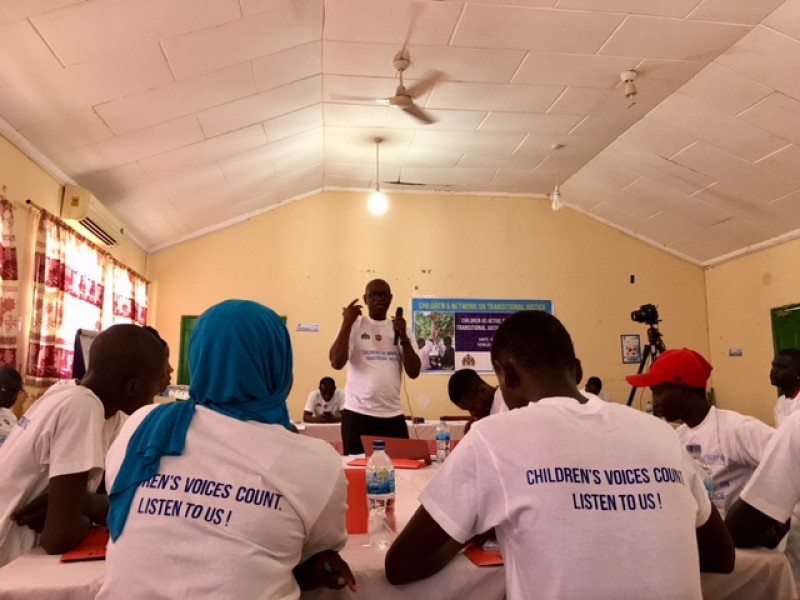Following the electoral defeat and exile of former dictator Yahya Jammeh in 2017, The Gambia embarked on a transitional justice process to rebuild a democratic state where human rights, individual freedoms, and rule of law prevail. ICTJ's mission in the country is to support the implementation of an inclusive, victim-centered transitional justice process in which all Gambians have ownership.
The Gambia

ICTJ leads a workshop on engaging youth in The Gambia.
Background: Fulfilling the Promise of ‘Never Again’
After seizing power in a coup in 1994, Yahya Jammeh imposed authoritarian rule on The Gambia for 22 years. The regime committed numerous serious human rights violations including summary executions, murder, enforced disappearances, sexual violence, arbitrary detention, and torture. Defeated in the 2016 presidential elections, Yahya Jammeh momentarily contested the election results before being forced to flee in exile to Equatorial Guinea.
The newly elected government quickly initiated a national transitional justice process. It established several institutions and bodies, including a security sector reform mechanism, a commission of inquiry on the financial dealings of the former dictator (operating from July 2017 to April 2019), the Constitution Review Commission (operating from June 2018 to March 2020), and the Truth, Reconciliation and Reparations Commission (TRRC) (opening in September 2018). The TRRC’s mandate has been extended twice to allow the commission time to finalize and submit its final report and recommendations to the country’s president.
During the public consultations organized by the government, victims and civil society organizations expressed their desire for justice, respect for human rights, and measures to prevent the recurrence of violence and repression. The Gambian people largely supported the TRRC, in particular, indicating broad public interest and trust in the process. In addition to its mandated objectives, the process has proven to be an important opportunity to engage all citizens and notably society’s most vulnerable in the building of a more just society where everyone’s rights are respected. That said, a number of significant issues, such as difficulty securing the safety of women participants, have challenged the process since its inception.
ICTJ’s Role
Since 2018, ICTJ has been working with a range of stakeholders to address the legacies of authoritarianism and human rights violation in The Gambia.
ICTJ supports the government in its commitment to a credible and inclusive transitional justice process by providing the TRRC and other relevant state institutions and actors with strategic advice, ongoing technical assistance, and other support. We have offered professional training to TRRC commissioners and other staff members.
ICTJ has created safe spaces for marginalized groups, particularly women and youth, to articulate their demands and participate in the process. We work to include all Gambians in the transitional justice process and to improve their ability to influence the process and advance their rights.
ICTJ works side by side with victims, women’s groups, and civil society organizations to ensure women are included and participate in the truth-seeking process. We supported the creation of the Women's Affairs Unit within TRRC. We helped women victims from rural areas to develop a report on the experience of women during the dictatorship period, which they officially and publicly presented to the TRRC in December 2019 to encourage the commissioners to consider the full range of sexual and gender-based violence in their report.
ICTJ works with youth groups and other civil society organizations to ensure their voices are heard, their concerns are considered, and they are included in the transitional justice process. We implement innovative outreach programs to engage youth and people living in remote areas.
We helped organize the Our Nation Our Voice youth artist collective, which toured the country in a caravan for 11 days, stopping in 11 villages and three towns to hold community dialogues with and perform concerts for some of the most marginalized Gambians. The artists’ music videos and a documentary about the caravan tour were premiered at a free concert in October 2019, attended by over 1,000 young people from greater Banjul. Our Nation Our Voice has raised awareness among Gambian youth about the importance of the country’s transitional justice process and their active participation in it.